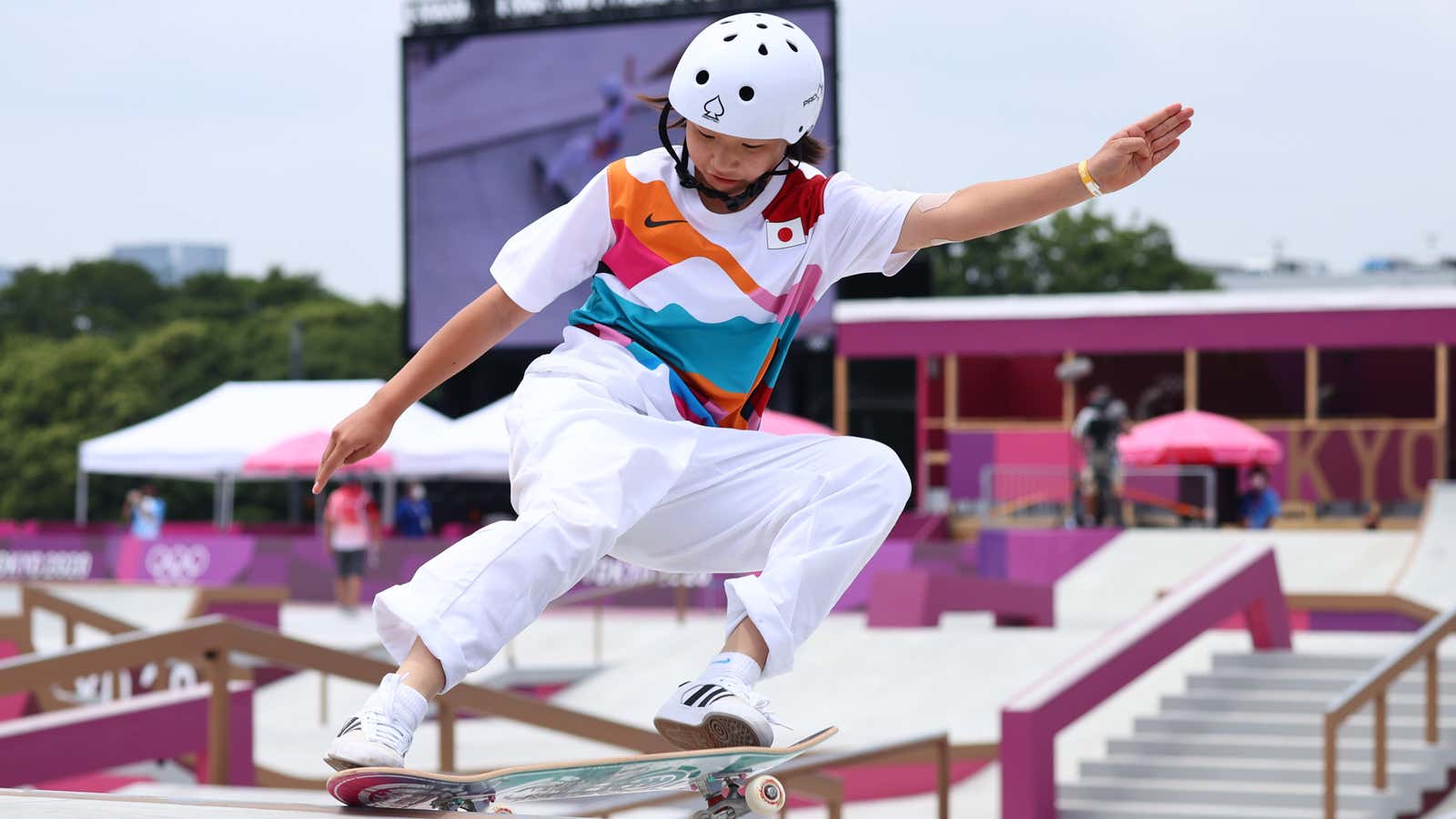At just 13 years old, Momiji Nishiya has become the first female Olympian to win gold in skateboarding, making her Japan’s youngest gold medalist ever.
Her victory is notable for another reason, too. It follows on her Japanese compatriot, Yuto Horigome, taking gold in the men’s street skating competition.
This year marks skateboarding’s introduction at the Olympics, and already host country Japan has claimed the first golds awarded. The impressive start reflects the rising stature of Japanese skaters in a sport where the most prominent names over the past decades have come from countries such as the US and Brazil.
Right now, for example, Nyjah Huston of the US may be the biggest figure in the sport. But at the skateboarding world championship in Rome this June it was Horigome who came through with an upset win to claim the top spot in men’s street skating. Huston took second, and another Japanese skater, Sora Shirai, came third.
Among the women at the world championship, Japan again dominated. Aori Nishimura, a prominent name among female skaters, ranked first, while Nishiya took second. Brazil’s Rayssa Leal rounded out the top three.
The Olympics, of course, reach a much wider audience, which could bring Japan’s skaters more recognition, globally and in Japan.
How skateboarding took off in Japan
Skateboarding has been on the rise for years in Japan, but it still has the reputation of being a pastime of misfits and rule breakers. That’s probably because in its early days in Japan, it was. “In my generation, young people on the fringes either went into motorcycle gangs or into skateboarding,” Haroshi, a Tokyo-based artist and longtime skater told the Independent newspaper last year. “Skateboarding was regarded as something that young criminals do.”
It had landed in the country by the 1980s, after first becoming popular in southern California in the 1960s as an offshoot of the surf scene. Helped along by Japan’s interest in American culture and US companies bringing skaters such as Tony Hawk to Japan on tours, skateboarding started to catch on as a subversive subculture. In a country where rule-following is prized, skateboarding and its brashness were frowned upon. Even today, in Tokyo, where Nishiya and Horigome won their Olympic golds for Japan, skating is restricted in many public areas.
But as skating has become more popular and influential globally, it has also attracted more interest in Japan. In recent years, the number of skaters in the country has grown substantially, leading to the construction of more public and private skate parks and giving rise to talented young skaters such as Nishiya and Horigome, who is 22.
Will skateboarding go mainstream?
These days the sport’s public image is shifting. In the same interview with the Independent, Haroshi noted that nowadays it’s common for parents in Japan to bring their children to skateboarding classes.
Even so, in Japan and beyond, skating is still generally seen as rebellious—an image often promoted by skateboarders themselves with their clothes and attitudes. But whether skaters like it or not, skating’s inclusion in the Olympics is helping make the sport even more mainstream, while athletes such as Nishiya and Horigome could inspire a new generation of talent.
